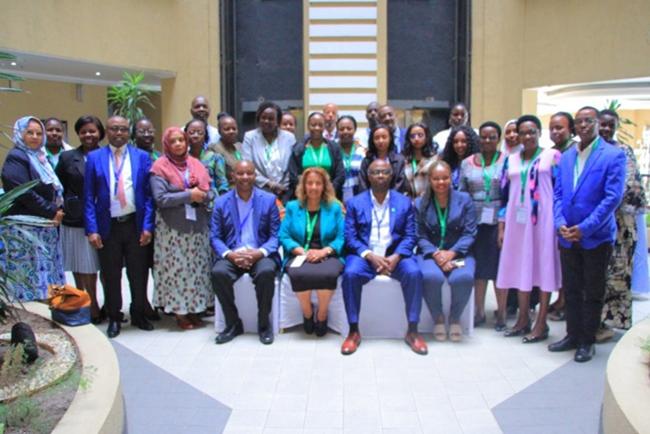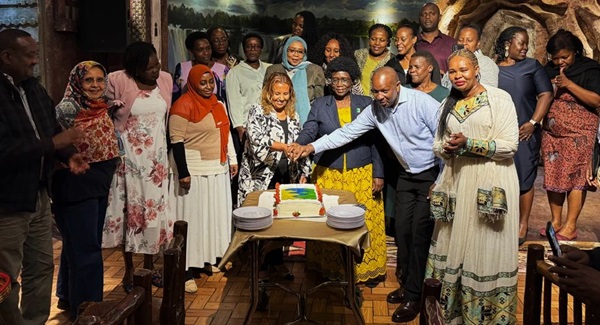NBI Trains 30 in Hydro-Diplomacy to Empower Women in Transboundary Water Management

The Nile Basin Initiative (NBI) has conducted a training programme aimed at unlocking the potential of women in transboundary water management and hydro-diplomacy. Held from 25–28 March 2025 in Addis Ababa, Ethiopia, the four-day workshop brought together 30 participants—both men and women—from across the Nile Basin region.
Participants were water management specialists from nine Nile Basin Member States, Burundi, Democratic Republic of Congo, Ethiopia, Kenya, Rwanda, South Sudan, Sudan, Tanzania and Uganda. Staff from NBI, Lake Victoria Basin Commission and the Nile Basin Discourse also participated.
The training was officially opened by Eng. Belyou Tekola, Ethiopia’s representative on the Nile Technical Advisory Committee. She urged the participants to translate their newly acquired knowledge into meaningful impact: “The challenges within the Nile Basin are complex and require diverse, inclusive approaches. Research consistently shows that mainstreaming gender in development enhances sustainability and credibility.
Why women?
Despite their central role in water management at community levels, women remain under-represented in leadership and decision-making in the water sector. The training sought to address this gap by equipping participants with core skills in hydro-diplomacy and the principles of cooperation in transboundary water contexts.

Participants received a comprehensive overview of NBI’s history, goals, strategy and the importance of its work. The training also delved into the socio-economic and political dynamics of the Nile Basin, drawing comparisons with other river basins worldwide. External influences affecting regional cooperation were explored, aiming to build trust and confidence in addressing complex water-related issues. Other topics of the programme included International Water Law, and the women trainees shared their experiences.
A key focus of the training was on equipping participants with practical tools to prevent and resolve disputes through peaceful dialogue. Central to this was the development of negotiation skills—covering approaches, strategies, tactics, and planning.
These tools are essential for navigating the complexities of shared water resources and fostering peaceful co-existence among countries in the Nile Basin and beyond.
By strengthening their ability to engage in constructive negotiations, participants are now better positioned to contribute to regional stability and equitable water governance in alignment with NBI's Shared Vision Objective: "To achieve sustainable socio-economic development through the equitable utilisation of, and benefit from, the common Nile Basin water resources."
Putting Knowledge into Action
At the conclusion of the programme, participants developed action plans to implement their new skills in their home countries, reinforcing the practical focus of the training. The participants also promised to support the establishment of Women in Water Diplomacy country chapters.
NBI Executive Director Dr Florence Grace Adongo later hosted a special dinner where she awarded certificates to all participants and thanked the World Bank, which funded the training programme. The event also included a belated International Women’s Day celebration, complete with Ethiopian cuisine, dance, and cake cutting.
